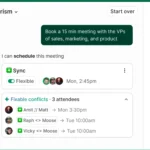In a significant move toward promoting transparency in digital content, leading tech giants OpenAI, Adobe, and Microsoft have endorsed a California bill that mandates labeling AI-generated content. This backing comes as AB 3211, a groundbreaking piece of legislation, heads for a final vote in August.
AB 3211 proposes that all AI-generated photos, videos, and audio clips be embedded with watermarks in their metadata. While many AI companies already adhere to this practice, the reality is that most consumers never examine metadata. To address this gap, the bill also mandates that major online platforms, such as Instagram and X (formerly known as Twitter), clearly label AI-generated content in a manner that is easily understood by the average viewer.
This legislative push is supported by the Coalition for Content Provenance and Authenticity (C2PA), an influential group that includes OpenAI, Adobe, and Microsoft. The coalition has been instrumental in developing the C2PA metadata standard, which is now widely adopted for marking AI-generated content.
Interestingly, this support marks a shift in stance for some tech companies. Earlier this year, a trade group representing Adobe, Microsoft, and other major software makers opposed AB 3211. In an April letter to California lawmakers, they described the bill as “unworkable” and “overly burdensome.” However, recent amendments to the bill appear to have addressed their concerns, leading to their current endorsement.
As the final vote on AB 3211 approaches, the outcome will be closely watched, not just in California but across the tech industry. This bill could set a precedent for how AI-generated content is managed and presented to the public, emphasizing the importance of transparency in the digital age.










